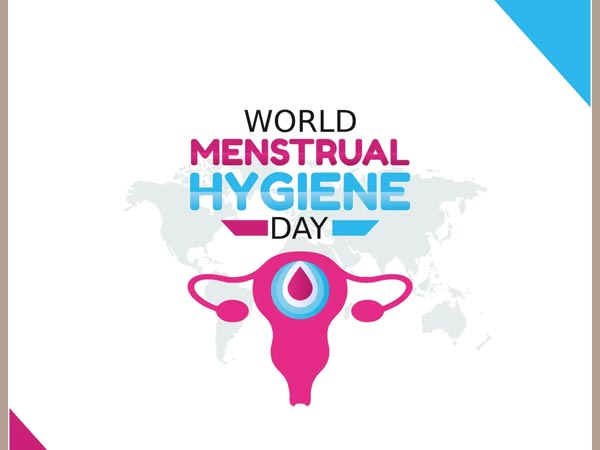Everyone has a common query, “Who started Menstrual Hygiene Day?”. Since its initial celebration in 2014, Menstrual Hygiene Day has experienced remarkable growth and expansion. The initiative has gained significant traction and has become increasingly recognized and supported globally.
Overall, the growth of Menstrual Hygiene Day reflects the increasing recognition of menstrual hygiene as a critical global issue. It showcases the collective efforts of individuals, organizations, and communities in promoting menstrual health, advocating for policy changes, and creating a supportive environment for women and girls worldwide.
Who started Menstrual Hygiene Day?
In 2013, the German non-profit organization WASH United took the initiative to establish Menstrual Hygiene Day. Since then, WASH United has been serving as the international secretariat and global coordinator for Menstrual Hygiene Day.
Their responsibilities encompass several crucial aspects:
- Coordinating the MH Day partner network: WASH United oversees a network of more than 910 social impact organizations involved in Menstrual Hygiene Day. They ensure effective collaboration and cooperation among these partners.
- Setting the overall strategy and direction: WASH United provides strategic guidance and direction for Menstrual Hygiene Day, ensuring that its objectives and goals are met effectively.
- Creating and disseminating campaign content: WASH United is responsible for developing and sharing content for the annual Menstrual Hygiene Day campaign. They actively engage in ongoing campaigning efforts to raise awareness and promote positive menstrual hygiene practices.
- Handling external communication and representation: WASH United manages the Menstrual Hygiene Day website, social media presence, and newsletters. They represent Menstrual Hygiene Day at conferences and other sector events, advocating for improved menstrual hygiene on a global scale.
- Establishing strategic partnerships and fundraising: WASH United forms valuable partnerships, including collaborations with the media, to amplify the reach and impact of Menstrual Hygiene Day. They also engage in fundraising activities to support the initiative’s activities and initiatives.
- Monitoring and reporting: WASH United monitors the progress and impact of Menstrual Hygiene Day, providing comprehensive reports on its outcomes and achievements.
Through these responsibilities, WASH United plays a vital role in driving the success of Menstrual Hygiene Day, promoting menstrual hygiene awareness, and advocating for improved menstrual health worldwide.
About World Menstrual Hygiene Day
The lack of proper menstrual hygiene, which stems from inadequate education, persistent taboos, stigma, limited access to hygienic menstrual products, and poor sanitation infrastructure, has significant negative consequences for women and girls worldwide. This issue not only affects their physical health but also has a profound impact on their education, overall well-being, and social status. Consequently, countless women and girls are hindered from realizing their full potential.

Insufficient education and awareness about menstrual hygiene management lead to misconceptions and misinformation, making it difficult for women and girls to maintain good menstrual health. In many cultures, menstruation is still surrounded by taboos and stigmatization, leading to shame and secrecy. This perpetuates a lack of open dialogue and inhibits access to accurate information and support.
Limited access to hygienic menstrual products is another major challenge. Many women and girls struggle to obtain affordable and reliable menstrual products, forcing them to resort to unhygienic alternatives or makeshift solutions. This compromises their comfort, dignity, and overall well-being during their menstrual cycles.
Furthermore, poor sanitation infrastructure exacerbates the issue. Inadequate sanitation facilities, such as lack of clean and private toilets, pose challenges for proper menstrual hygiene management. Without access to safe and private spaces for changing and disposal, women and girls face discomfort, embarrassment, and increased health risks.
The consequences of poor menstrual hygiene are far-reaching. It hampers girls’ ability to attend school regularly, leading to missed educational opportunities and lower academic performance. In some cases, girls may drop out of school altogether due to the challenges they face during menstruation. This perpetuates a cycle of limited opportunities and reinforces gender inequalities.
Additionally, the impact extends to women’s overall social status and empowerment. When women and girls face barriers in managing their menstrual health, they are often marginalized and excluded from various aspects of society. This limits their participation in social, economic, and political spheres, hindering progress towards gender equality.
Addressing these challenges requires comprehensive efforts, including education programs that promote menstrual health awareness, destigmatization initiatives to challenge cultural taboos, improved access to affordable and hygienic menstrual products, and the development of proper sanitation infrastructure. By addressing these barriers, we can empower women and girls, enhance their well-being, and enable them to reach their full potential in all aspects of life.
